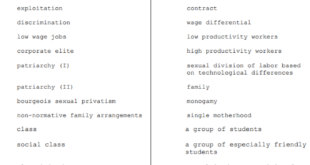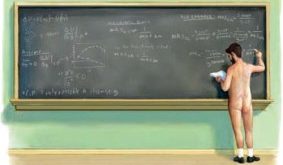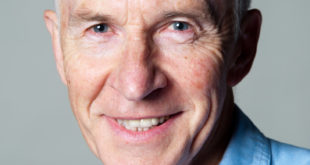When in mathematics the unknown becomes the unknown quantity in an equation, it is made into something long familiar before any value has been assigned. Nature, before and after quantum theory, is what can be registered mathematically; even what cannot be assimilated, the insoluble and irrational, is fenced in by mathematical theorems. In the preemptive identification of the thoroughly mathematized world with truth, enlightenment believes itself safe from the return of the...
Read More »En plats i mitt hjärta (personal)
En plats i mitt hjärta (personal) Sankt Pauli mellersta kyrkogård i Malmö är en plats som, sedan jag flyttade tillbaka till Malmö efter femtio år, kommit att betyda mycket för yours truly. Hit söker jag mig gärna för långa promenader med min hund, men också många gånger för att söka tröst och vilsam kontemplation ‘far from the madding crowd’. En lisa för själen. Far from the madding crowd’s ignoble strife, Their sober wishes never learn’d to...
Read More »Julian Assange et la liberté de la presse
Julian Assange et la liberté de la presse .[embedded content]
Read More »Economics phrasebook
In 1990, two economics PhD students at the University of Chicago, Jeffrey Smith and Kermit Daniel … composed “Economics to Sociology Phrase Book” in order, as they put it, “to help economists adjust their way of speaking in a manner that will make it comprehensible to Sociologists” … Concerning economics terminology, by the way, one can see that not much has changed since then. Oleg Komlik
Read More »Nationalekonomiska föreningens årsmöte
.[embedded content]
Read More »Economic modelling
A couple of years ago, Paul Krugman had a piece up on his blog arguing that the ‘discipline of modeling’ is a sine qua non for tackling politically and emotionally charged economic issues: In my experience, modeling is a helpful tool (among others) in avoiding that trap, in being self-aware when you’re starting to let your desired conclusions dictate your analysis. Why? Because when you try to write down a model, it often seems to lead some place you weren’t expecting or...
Read More »Foucault’s cryptonormative approach — a critique
Foucault’s cryptonormative approach — a critique I always found Foucault’s work frustrating to read. His empirical accounts are interesting and some of his concepts fruitful – disciplinary power, capillary power, surveillance, technologies of the self, the entrepreneur of the self, for example – and he was prescient about neoliberalism, but his theoretical reasoning is often confused. His attempts to define power, and his unacknowledged slippage between...
Read More »Spirit in the Sky (personal)
Spirit in the Sky (personal) .[embedded content] Marcel Proust hade sin Madeleinekaka. Jag har musiken. Den här låten är för mig alltid förknippad med sommarminnen på 70-talet från Hästveda och Luhrsjön, där jag och kompisen Johan (Ehrenberg) brukade spela flipper vid strandcaféet och den här låten gick varm på jukeboxen. Minnen som fortfarande värmer och som glömskan inte rår på.
Read More »Problems with Propensity Score Matching (wonkish)
Problems with Propensity Score Matching (wonkish) .[embedded content]
Read More »Neues von Gerhard Schröder
Neues von Gerhard Schröder .[embedded content]
Read More » Lars P. Syll
Lars P. Syll




